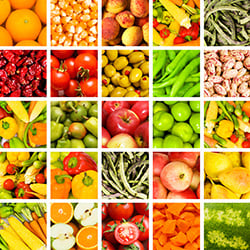 What are the best foods to feed composting worms? What are the worst foods? People who compost with worms face these questions every day. Fortunately, Uncle Jim’s Worm Farm has this Worm Feeding Guide! Vermicomposting is easy if you know the right foods to feed the worms — and the foods to avoid.
What are the best foods to feed composting worms? What are the worst foods? People who compost with worms face these questions every day. Fortunately, Uncle Jim’s Worm Farm has this Worm Feeding Guide! Vermicomposting is easy if you know the right foods to feed the worms — and the foods to avoid.
Qualities of Ideal Foods for Worms
Composting worms are hungry for your kitchen left-overs, garden waste, and coffee grounds!
The best foods for worms come from plants. This includes grains, fruits, vegetables, and beans. Plant matter is filled with nutrients and vitamins that worms need. Their excrement, called “humus,” contains digested nutrients and earth-friendly bacteria. Humus makes an ideal fertilizer for growing new plants.
Worms do not have teeth. Their little mouths take in the food. Therefore, they can digest food faster if it is:
- Soft
- Cut into small pieces, with a knife or food processor
- Somewhat moist
- Buried in the bin – just below the surface for Red composting worms
Qualities of Bad Foods for Worms
Certain foods are not good for worms.
Acidic foods upset the pH in the bin. Worm bins need a neutral pH to stay healthy. If the bin becomes too acidic, there will be a bad odor, and the worms’ healthy could be compromised. Do not add citrus peels, pulp, or juice (orange, lemon, lime). Also, pineapple is too high in acid. Large amounts of tomatoes, tomato sauce, and tomato juice are not good. Very small quantities of these foods will not make a difference.
Salty foods like olives should be soaked in water for a day before feeding. Discard the water.
Do not put toxic items in the worm bin. Worms are living creatures and they could die. Sawdust from pressure-treated wood is toxic. So are plants heavily treated with pesticides and herbicides. Carbon paper and carbonless paper are off the menu. So is office paper, because it is bleached white. Color ink from newspaper is not ideal — shredded newspaper with black ink is best.
Grass clippings from treated lawns are toxic. Additionally, green grass clippings generate too much heat as they break down. These high temperatures can kill your worms.
Fertilizers and other chemical compounds might be suitable for soil. However, they are too strong to add to a worm bin. They contain chemical salts that cause harm to the worms.
Use your common sense when evaluating foods for the bin. Would you eat food that contained toxic chemicals? No. Then don’t feed them to your worms.
How Animal Products and Greasy Foods Ruin the Composter
You should never add meat, animal products, dairy products, or greasy, oily foods to the worm bin. The oils, meat, and milk become rancid as they decompose. Rotting oils cause a powerful and unpleasant odor. Additionally, various vermin will be attracted to the smell. Raccoons — or worse — might start knocking over the bin to feed. Find another way to dispose of leftovers like this.
Another brilliant plan that can backfire is putting animal feces in the vermicomposting bin. Rabbit droppings can be composted under the right conditions. Manure from cattle and other herbivorous farm animals can contain too much salt and urea. They will be too hot for the worm bin. Let the manure “mature” outdoors in the elements for a year. Composting dog and cat feces are utterly out-of-the-question. These pets are omnivorous or carnivorous. Their feces contain parasites, viruses, and toxins.
Diseased plants and animals should never go into the compost bin. Temperatures are not high enough to kill pathogens or seeds. The problem might come back the next growing season.
Items that Won’t Break Down
Some items will take a long time, or eternity, to break down in a worm bin.
- Fruit pits
- Avocado pits
- Contaminants such as plastic toys, shredded window envelopes from mail, etc.
Pick these items out and discard.
How to Scrape a Plate
Dinner is over, but there is still food on a plate. When scraping leftovers from plates, discard meat, dairy products, and bones. Foods drenched in oils, oily sauces, and vinegar dressings should be rinsed or discarded. Citrus and pineapple can go in the trash. Small amounts of tomato are fine. The rest can go in the compost collection pail and later, in the worm bin.
Are members of your household having trouble remembering what goes in the compost bin? Post a reminder next to the collection pail. When in doubt, leave it out.
Composting with worms is good for the environment. The result is superb finished compost, which you can add to the soil for future growing. Feeding your worms the right kinds of foods helps make your composting bin a success. At Uncle Jim’s Worm Farm, we provide superb composting worms (Red worms for composting; Super Reds for putting directly in the garden), composters, and composting knowledge.
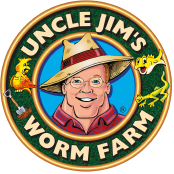

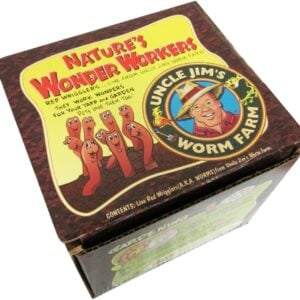
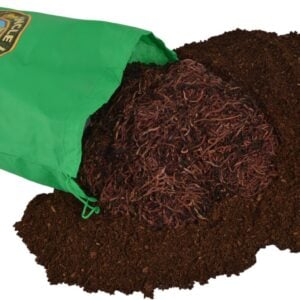
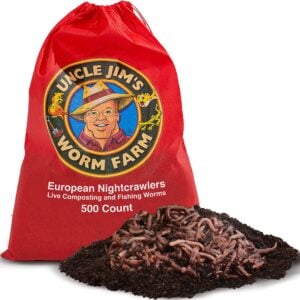
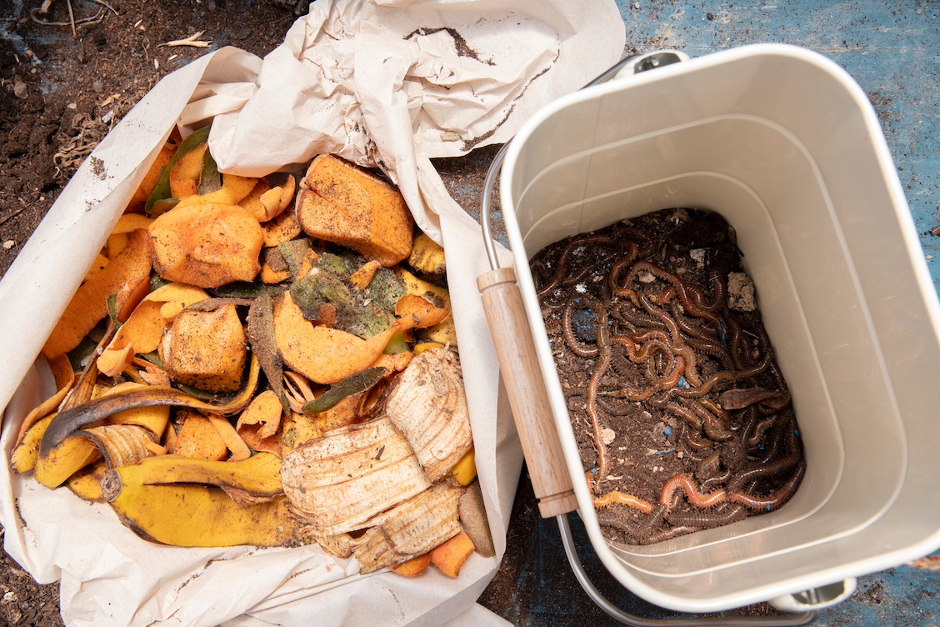
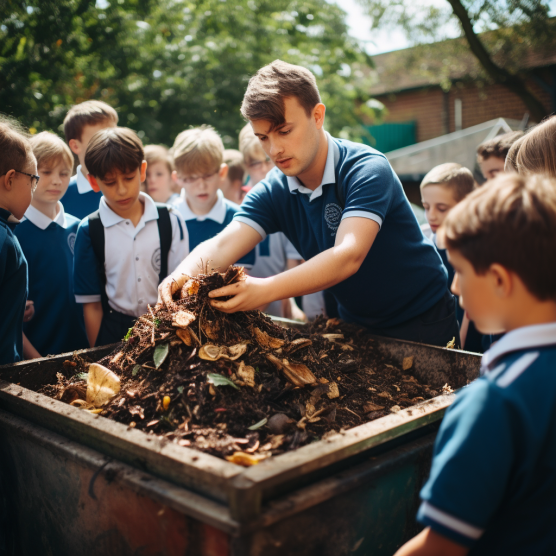
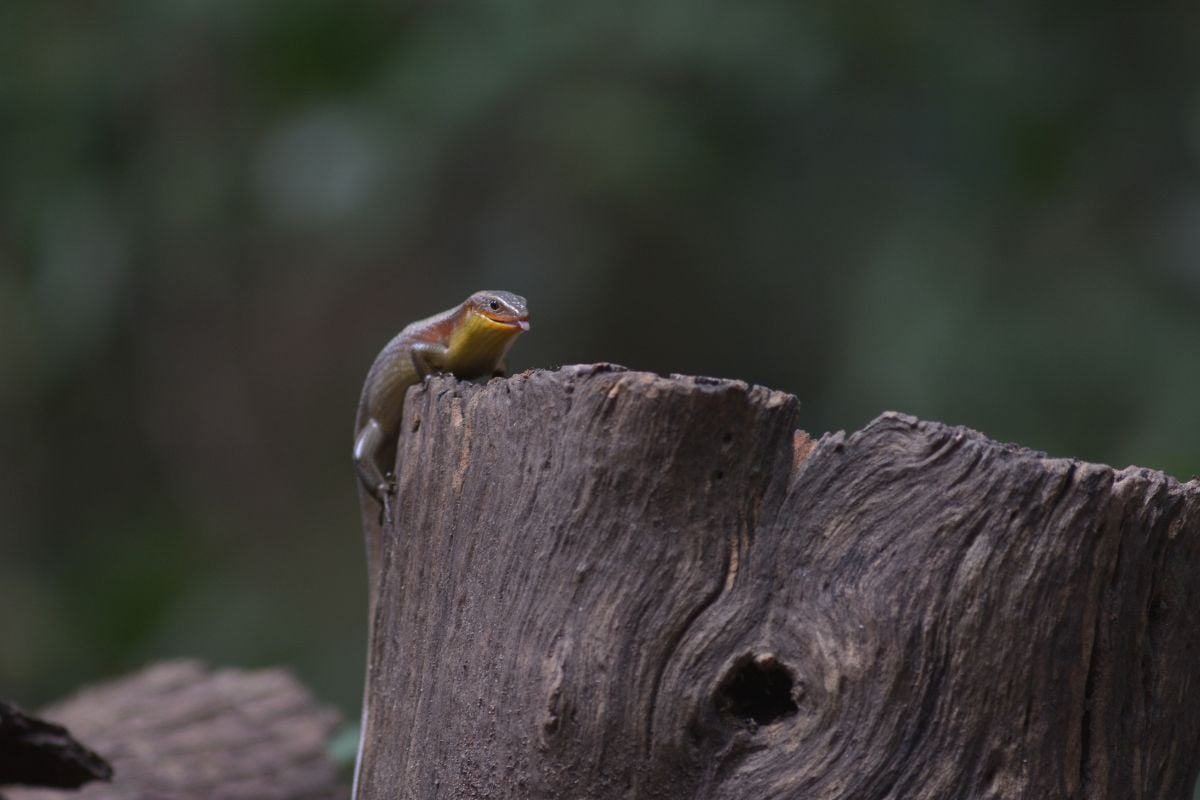
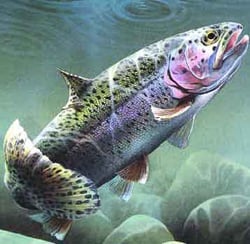
51 thoughts on “Composting Worm Feeding Guide: Best and Worst Foods”
my worms are not getting fat there skinny lots of baby’s but wont grow
Hi Joe! Is the bin moist? The moistness in the soil ensures that the worms are not dehydrated. Which type of worms are you using? The Red Composting worms are a much smaller worm than the European Night Crawlers. The Red’s get to be about 1-3 inches long and as thick as cooked spaghetti. Also, adding soy to the worms diet will make them more plump. Hope this helps!
I love these artclies. How many words can a wordsmith smith?
My worms are not growing I have lots of baby worms but worms are not growing what do I need to do
Hi Patrick! Is the bin moist? The moistness in the soil ensures that the worms are not dehydrated. Which type of worms are you using? The Red Composting worms are a much smaller worm than the European Night Crawlers. The Red’s get to be about 1-3 inches long and as thick as cooked spaghetti. Also, adding soy to the worms diet will make them more plump. Hope this helps!
Is it okay to put my worms on egg layer chicken feed? We have the pellet variety and I’m thinking about crushing/crumbling the pellets to feed my worms.
I made grape pops for the summer and had a lot left over. It contains fruit and sugars. I was going to feed it to my worms, but, it began to ferment. Is this still ok for them, or will I have drunk worms?
When i feed my cats,wet food from a reputable brand,they tend to eat most of the juice parts and leave more solids behind. Was wondering if i could add this to the worm farm?
Do the night crawlers ever feed on smaller worms like red wiggles or smaller worms?
can i give fish waste remining after cleaning the fish.
I use avocado pits by first cutting them in half, them into smaller pieces and then grinding them. The worms love crushed avocado pits.
Sugar should be fuel for the bacertia which the worms would eat i add sugar abd left over alcohol mash to my bin but it could just be the quanity and size of my bin that allows it to break down because i add alot of these items that are included on the list of things not to add. Plus i also have reds and European which are larger
Is is OK to feed soy flour to my worms? It is past the use by date.
Will worms eat my already past the hot stage compost? I compost leaves crop residue and chicken manure in a hot trench. Can I then use the “finished” compost for the worm bedding? The compost is usually dark brown but you can still tell what plants were there. I assume I should mix lime while composting to get the PH down before giving it to the worms.
Hello Tony;
If you mix this finished product with some peat moss and check the pH before adding the worms, it should not harm the worms and will be a food source for them.
Uncle Jim’s
Hey Tony, I know this is a pretty late reply, and hopefully you have learned this on your own by now, but the peat moss that was suggested by Uncle Jim’s is a good way to bring the PH down a bit. Using lime, as you had asked in your question, will bring the PH up, not down!
i had some fish heads and sea egg shells soaking for a month or so and the smell was bad like it was well and truly fermented and i added some to my worm bin and it now smells will that have a bad effect on the vege plants if iuse it for that
Whenever I hear people comment about ‘lots of babies’ in their worm farm I check to see what colour these babies are. If they’re white and very small, they’re not compost worm babies – they’re pot worms (enchytraeid worms). Pot worms love damp, acidic conditions. The worm farm needs lime dusted in regularly to adjust the pH – and handfuls of torn-up newspaper or cardboard to soak up excess moisture. Plus – if too damp – you’re probably not getting good airflow through the mass – thus anaerobic conditions (sniff for a bad smell) have developed. Stir it up to get better airflow.
Hi I’ve added all the stuff you said would raise the temperature and get my worms moving but it hasn’t had any effect. Everything is still. Very cool to the touch. I have babies but they don’t seem to be growing either I’ve checked the moisture and added water. And they don’t seem to eat much.? Help!
Hey I just started composting a couple days ago. So is the scraps supposed to be under the dirt? Also how long is the composting process? Thanks!
my worms are having babies we have 100000 babies.
I was curious if there were specific diets for worms that would produce a better castings for specific plants. In other words, can I alter the diet to produce castings better suited for an edible garden and then in another bin a different diet better for trees or bushes?
My 4.5 year old just found a worm, and all I have at home are purple grapes. Is that ok to feed them that?
Can I use my Guinea Pig droppings in my worm bin?
Do you have to feed the worms a ratio of 4:1 – Carbon:Nitrogen after they have started to turn everything into worm castings? From there, could you hypothetically just feed them the nitrogen portion or is the carbon as important? I ask because I was reading about a worm castings company called VermisTerra. They only feed their worms green waste. They claim that fillers like cardboard and decomposing manure, etc, is not as good of a final product for your plants as purely green plant waste. Is this true?
FYI, a lower ph is more acidic. Lime will NOT bring it up. A higher ph is alkaline
I’ve been feeding my worms exclusively on finished composited matter for year’s without a hitch. I then preform a soil change after 3 month’s in away that allows the eggs to hatch and the babies to escape. I swear by this nutrient rich plant food, it’s the best ever. As a good composting will neutralize all the bad stuff, thus making it worms safe.
Lime is alkaline and WILL raise pH. Limestone is better than hydrated lime for this purpose.
I grow beans and they can’t handle too much nitrogen. For that we are to add lime into the soil as an ammendment to bring down acidity from things like soil that is too acidic as well as peat moss, which is valuable but acidic. My worms can or can’t have a little lime? I have food-grade powder in a rougher grind. I have dozens of tiny bugs that are grayish and love the sides of the bin, and are now blending into the top layer; they are fairly speedy and busy but disappear from the light when I open the lid up for a few hours in my daylight basement. Bin doesn’t smell bad and never has. I keep it mostly coir with a handful of organic potting soil with some perlite already in it, a very tiny bit of sand from my succulent growing, and shredded brown packing paper (therefore unbleached). Cutting back on any juicy or acidic foods like watermelon, and hoping to add more fine egg shell powder and/or fine oyster shell powder for calcium. What are great non-acidic but nutritious foods and nobody online is mentioning those by name. Suggestions? We are in a high-acid stage of foods (summer foods like tomatoes, melons, etc. I do have some dry food in a container from a fishing worm site that I had saved for any prolonged times away from home. I wipe the bugs away with a barely damp but hot watered paper towel around the edges and top of my vermicomposter stacked bin every day when I pull the lid off, then take the lid off, rinse it in hot water and let it air dry. What can I do to lessen or remove these bugs? I thought they actually might be a kind of book bug that likes the paper but it seems like mites are supposed to be this way too. They are extremely small but I don’t want them bothering my worms or in my house. Am not overwatering my bedding from what I can tell. Am only feeding a handful of scraps every 3-4 days, very finely chopped, frozen, then reheated in microwave, then cooled to avoid fruit flies, weevils, etc. Just stumped, though we do have a very humid climate near the coast. Help. I bought 500 beautiful worms from you via Amazon, btw, and am very content. They were very healthy and mite free. Not one dead one could I find and they were very vigorous.
Forgot to mention: I definitely cover up all scraps by abount 2 ” of bedding. It took a few months before these bugs “arrived” out of the blue, even though the basement humidity and temperature are pretty much the same as when the worms first came. I don’t want to take them outside into the sun like some recommend as I don’t want other pests coming to visit, lay eggs, etc.
Yet, all bean growers throw in lime to cut acidity in soil. That means more alkalinity (and a higher number), rather than numbers below 7 and more acidic soil. Are we agreeing or not?
Yes. I have things like Espoma Organic Lime that are described as “safer than hydrated lime”–so good!
Attn: Laura Wittmer. My comment on just feeding worms green matter in regards to healthier compost for plants: when it comes to making a complete compost that is good for plants you will need carbon material in any good plant compost…wood (untreated), sawdust, fine bark mulch and tiny twigs cut up if you have spare branches, wood ash but not too much, shredded newspaper or brown packaging paper (unbleached is best), and the woodier parts of plants left from your garden (disease free) as well as beautiful mold-free/blackspot-free fallen leaves from deciduous trees are all very important. The reason brown matter is so essential is that green matter can give too much nitrogen for some plants, and brown matter when fine but not heavy and compacting soil will help give the plants’ roots some aeration (air pockets) and keep soil from being hard as a rock and killing young seedlings/plants. When doing your own open compost piles, the heat produced from the mix of carbon material layered between layers of green matter is essential for breaking it all down. I am not a worm expert, just trying to explain why a mix is usually so important to making perfect compost. Remember: grass clippings are full of ammonia and are part of the “green” portion of a good compost pile. Don’t use treated lawn grass (grass with pesticide) and don’t use only grass or too much grass. The heat from a good aerated, damp like a somewhat damp oopen compost pile can even cook weed seeds and keep them from germinating if you accidentally are adding in a few seeds. Also, adding a layer of good garden soil or dirt and/or well-rotted steer manure can help heat up the pile. Aerate regularly with an aerator tool or turn regularly and punch holes in the top with a pitchfork or composting fork. I like Dr Earth’s compost starter when following instructions. BTW: don’t waste vermicultured compost (worm castings) in a regular compost pile. Top dress your soil around your plants right out of the worm bin.
@ Douglas: Are you talking about steer manure or a mixed compost like Cedar Grove from Home Depot that is mostly organic plant/wood matter?
Just pruned back the plants in our pond. Can I cut up and use these aquatic plants? Thank-you, Dawn Smith
Disappointed that I referenced this ‘reputable’ site, but there are so many unanswered questions.
Attn j wow to get rid of the little bugs try glue traps for roaches/fleas/rodents I doubt worms would stick to the trap. Fly paper tapes may work too. I’ve caught fleas and tiny roaches so you may find your uninvited guests in wormland may stick too. Laying it on top or taping to the sides of the bin may be effective.
Regarding the question as to whether or not guinea pig droppings can be used safely in a worm bin, the answer is yes; like rabbit droppings, guinea pig droppings can be used directly on plants without danger of burning the roots,.
Obviously, you wouldn’t want to mix in bedding that has been saturated with urine, though that can be composted normally, and the mixture can be used to top dress bushes and trees that are planted in the ground.
I hope that helps!
J-wow it seems you are confusing composting with worm farming. High heat is essential for composting but hazardous for worms. You can kill worms with too much heat. Also, don’t obsess so much about bugs in your worm farm. They help with decomposing too and won’t harm the worms. There is a lot of symbiosis in nature. You can’t control everything and don’t need to.
I am preparing my worm bed material. In past years, I’ve found that pulp egg cartons work great (along with my other bedding materials), but we were only able to find blue fruit pulp trays. Is this a food grade dye and is it toxic to my worms?
Hi Val,
From what I know about the pulp containers they are typically advertised as earth friendly. These containers are made entirely of recycled pulp to provide a sustainable alternative to plastic products. Since it is biodegradable and compostable, it makes a great eco-friendly addition to your composter and worm bin. Given this information I would have to say they would be safe for the worms. If you do further research based off possibly a specific brand you see on your container, you mind find other details that make it not so eco friendly. I hope this information helps.
Have a great day,
Uncle Jim’s Team
What are the best foods to feed composting worms? What are the worst foods? People who compost with worms face these questions every day. Fortunately, Uncle Jim’s Worm Farm has this Worm Feeding Guide! Vermicomposting is easy if you know the right foods to feed the worms — and the foods to avoid.
Question: would raw pizza dough serve as a good food source for nightcrawlers?
Can I add bokashi (bunny manure) to my compost we both worms? It is supposed to lower its Ph after a few weeks? Will they avoid it or should I compost in a separate compost pile for a fewvweels first? Thanks!
What makes so many think their worm babies aren’t growing? I’d guess they are, and more worm babies are being born all the time.
Is unsweetened commercial applesauce ok to feed my red composting worms? the jar says it contains ascorbic acid as a preservative.
I was wondering this as well.
Can red wrigglers be fed nutritional yeast.
I use a blender to mix up and blend my kitchen waste, canning waste and was wondering if its to fine, and how much or how often should they be fed. using 1 qt blender.
I have the worms in a wooden box 2ftx4ftx1.5ft box in the basement, how often should the bedding be changed or indicators to know when to add more bedding( coir block,straw. )
thx bob
Limes and lime are 2 opposite pH things Citrus fruit like limes, oranges, tangerines, lemons are acidic with low pH. They are a good cat repellent if cats are spraying or urinating where they shoui. Lime, the sack of powder that you buy is high pH, it’s ground up limestone.
How do I get rid of Weevils in my worm compost bin? Are they a problem or concern?